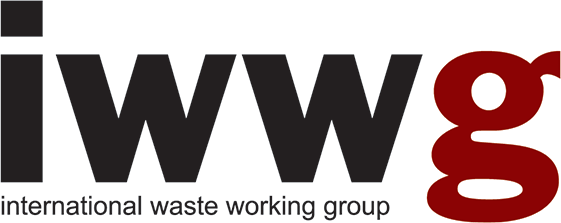HOUSEHOLD HAZARDOUS WASTE: GAUGING KNOWLEDGE LEVEL AND ITS IMPLICATION FOR DOMESTIC WASTE HANDLING AND DISPOSAL PRACTICES
- Available online in Detritus - Volume 27 - June 2024
Access restricted to subscribed members only
Released under All rights reserved
Copyright: © 2023 CISA Publisher
Abstract
Household hazardous waste (HHW) refers to waste generated at the household level that can pose a danger to public and environmental health if not managed properly. The amount of waste, including HHW, has been increasing due to urbanisation, rising income levels, and changes in lifestyles. Unfortunately, most households are not aware of the potential risks associated with this waste, despite the serious health and environmental hazards it can pose. This creates a conundrum which this study seeks to unpack. A mixed-method approach addressed this gap, including a policy dialogue and a survey of 1,245 Greater Accra Metropolitan Area respondents. From the findings, most respondents disposed of aerosol cans, disposable sharps, unused or expired medication/drugs, fluorescent tubes and LED bulbs, and electronic waste as part of their household waste. Significantly, it was concerning that 68% of participants were unaware of the potential health hazards associated with improper disposal of HHW. Based on empirical evidence, the awareness levels were affected by gender, education level, and occupation. To address the issue of HHW and reduce its harmful impact on the environment and public health, it is essential to implement policies that encourage waste segregation, establish product stewardship programs, and conduct targeted education campaigns. These actions will help raise awareness about the significance of proper HHW disposal. Additionally, it is vital to have a strong political will to effectively enforce legislation that supports the shift towards more sustainable waste management practices, thus promoting sustainable development.Keywords
- Household hazardous waste
- Waste management
- Extended producer responsibility
- Emerging waste
- Greater Accra Metropolitan Area
Editorial History
- Received: 15 Sep 2023
- Revised: 22 Mar 2024
- Accepted: 15 May 2024
- Available online: 17 Jun 2024
References
Akubia, J. E. K., & Bruns, A. (2019). Unravelling the frontiers of urban growth: Spatio-temporal dynamics of land-use change and urban expansion in Greater Accra Metropolitan Area, Ghana. Land, 8(9), 1–23. 10.3390/land8090131
Al-Tamimi, W. M., Khatib, I., & Kontogianni, S. (2018). Household hazardous waste quantification, characterization, and management in developing countries’ cities: A case study. In C. Hussain (Ed.), Handbook of environmental materials management. Springer
Amoabeng, I. A., Otoo, B. A., Darko, G., & Borquaye, L. S. (2022). Disposal of unused and expired medicines within the Sunyani Municipality of Ghana: A cross-sectional survey. Journal of Environmental and Public Health.
DOI 10.1155/2022/6113346
Ansong, D., Nkyi, C., Appiah, C. O., Amuzu, E. X., Frimpong, C. A., Nyanor, I., & Sylverken, J. (2016). Epidemiology of paediatric poisoning reporting to a tertiary hospital in Ghana. South African Journal of Child Health, 10(1), 68–70
Cassel, S. (2018). Product stewardship: Shared responsibility for managing HHW. In A. D. Cabaniss (Ed.), Handbook on household hazardous waste (2nd ed., pp. 167–222). Bernan Press
Chellel, K., & Dontoh, E. (2022). West Africa is drowning in plastic. Who Is responsible? https://www.bloomberg.com/features/2022-coca-cola-nestle-west-africa-ghana-plastic-waste-recycling/?srnd=premium-africa
Creswell, J., & Clark, V. L. P. (2017). Designing and conducting mixed methods research (3rd ed.). Sage Publications, Inc
Daum, K., Stoler, J., & Grant, R. J. (2017). Toward a more sustainable trajectory for e-waste policy: A review of a decade of e-waste research in Accra, Ghana. International Journal Environmental Research Public Health, 13(2), 135.
DOI 10.3390/ijerph14020135
Decharat, S., Buacharoen, T., Khongrit, V., & Ridchuayrod, S. (2020). Residents’ awareness, attitudes and perceptions of household hazardous waste management in Pa-payom, Phatthalung. Journal of Southern Technology, 13(1), 178–190
Deku, S. (2017). An assessment of sustainable solid waste management in Accra-Ghana. Southern Illinois University Carbondale
Delgado, O. B., Ojeda-Benítez, S., & Márquez-Benavides, L. (2007). Comparative analysis of hazardous household waste in two Mexican regions. Waste Management, 27(6), 792–801.
DOI 10.1016/j.wasman.2006.03.022
Edokpayi, J. N., Odiyo, J. O., Durowoju, O. S., & Adetoro, A. (2017). Household hazardous waste management in Sub-Saharan Africa. In D. Mmereki (Ed.), Household Hazardous Waste Management. IntechOpen
FDA. (2020). “Take Back of Unwanted Medicines” (TBUM) project. https://fdaghana.gov.gh/news-media.php?page=34
Field, A. (2013). Discovering statistics using IBM SPSS statistics (M. Carmichael (ed.); 4th ed.). Sage Publications Ltd
Frimpong, L. K. (2019). Fear of crime in the Sekondi-Takoradi metropolis: Exploring the role of the built environment and community social orgaization. University of Ghana
Fuller, S., King, D. N., Bruning, S., & O’Donnell, M. (2018). The mechanics of HHW collection and management. In A. D. Cabaniss (Ed.), Handbook on household hazardous waste (2nd ed.). Bernan Press
GSS. (2021). Ghana 2021 population and housing census general report Volume 3A: Populations of regions and districts
Gutberlet, J., & Uddin, S. M. N. (2017). Household waste and health risks affecting waste pickers and the environment in low- and middle-income countries. International Journal of Occupational and Environmental Health, 4(1), 16.
DOI 10.1080/10773525.2018.1484996
Inglezakis, V. J., & Moustakas, K. (2015). Household hazardous waste management: A review. Journal of Environmental Management, 150, 310–321.
DOI 10.1016/j.jenvman.2014.11.021
Kaza, S., Yao, L. C., Bhada-Tata, P., & Van Woerden, F. (2018). What a waste 2.0: A global snapshot of solid waste management to 2050. https://openknowledge.worldbank.org/handle/10986/30317
Keesman, B. (2019). Market survey: Waste and circular economy in Ghana. https://www.rvo.nl/sites/default/files/2019/08/Ghana-Market-Survey-Waste-Circular-Economy.pdf
Kontogianni, S., Karagiannidis, A., Logothetis, D., & Alexiou, G. (2014). Investigation of the household hazardous stream in a Hellenic municipality. Journal of Environment and Waste Management, 14(1), 65–83
Lee, G. D., Hong, D., & Liu, J. (2011). Effects of attitudinal and sociodemographic factors on pro-environmental behaviour in urban China. Environmental Conservation, 38(1), 45–52.
DOI 10.1017/S037689291000086X
Letcher, T. M., & Slack, R. J. (2019). Chemicals in waste: Household hazardous waste. In T. M. Letcher & D. A. Vallero (Eds.), Waste: A handbook for management (pp. 337–352). Elsevier Inc
Miezah, K., Obiri-Danso, K., Kadar, Z., Fei-Baffoe, B., & Mensah, M. Y. (2015). Municipal solid waste characterization and quantification as a measure towards effective waste management in Ghana. Waste Management, 46, 15–27.
DOI 10.1016/j.wasman.2015.09.009
Ministry of Health. (2022). National policy: Non-communicable diseases. https://www.moh.gov.gh/wp-content/uploads/2022/05/Ghana-NCD-Policy-2022.pdf
Mmereki, D., Li, B., Hong, L., & Baldwin, A. (2017). Introductory chapter: overview of household hazardous waste wanagement in the African context. In Household Hazardous Waste Management (pp. 1–7). IntechOpen.
DOI 10.5772/66307
Mudiyanselage, N. A., & Herat, S. (2022). Management of household hazardous waste: A review on global scenario. International Journal of Environment and Waste Management, 29(2), 230–240.
DOI 10.1504/IJEWM.2022.121211
Nightingale, D., & Lewry, B. (2018). HHW Collection Facilities. In A. D. Cabaniss (Ed.), Handbook on household hazardous waste (2nd ed., pp. 103–118). Bernan Press
Odonkor, S. T., & Sallar, A. M. (2021). Correlates of household waste management in Ghana: Implications for public health. Heliyon, 7(11), e08227.
DOI 10.1016/j.heliyon.2021.e08227
Oduro-Appiah, K., Afful, A., & Osei-Tutu, H. (2022). Assessment of belief constructs to support an intervention in municipal solid waste separation at the source in low–middle-income countries: Observations from the Greater Accra Region of Ghana. Recycling, 7(2).
DOI 10.3390/recycling7020017
Oteng-Ababio, M. (2012). Electronic waste management in Ghana - Issues and practices. In S. Curkovic (Ed.), Sustainable Development - Authoritative and leading edge content for environmental management. IntechOpen
Oteng-Ababio, M. (2023). Managing solid waste for a sustainable Accra
Owusu-Sekyere, K., Batteiger, A., Afoblikame, R., Hafner, G., & Kranert, M. (2022). Assessing data in the informal e-waste sector: The Agbogbloshie scrapyard. Waste Management, 139, 158–167
Owusu-Twum, M. Y., Kumi-Amoah, G., Heve, W. K., Lente, I., Owusu, S. A., Larbi, L., & Amfo-Otu, R. (2022). Electronic waste control and management in Ghana: A critical assessment of the law, perceptions and practices. Waste Management & Research, 40(12), 1794–1802.
DOI 10.1177/0734242X221103939
Quinn, J., & Brunning, A. (2018). Creative collection and management options. In A. D. Cabaniss (Ed.), Handbook on household hazardous waste (2nd ed., pp. 119–136). Bernan Press
Republic of Ghana. (2016). Hazardous and waste control and management Act, 2016 (Act 917). http://www.epa.gov.gh/epa/sites/default/files/downloads/publications/Hazardous%25
Roggof, M. J., & Biderman, D. (2015). Worker safety in solid waste collection. MSW Management, 3–6
Sarfo-Mensah, P., Obeng-Okrah, K., Arhin, A. A., Amaning, T. K., & Oblitei, R. T. (2019). Solid waste management in urban communities in Ghana: A case study of the Kumasi metropolis. African Journal of Environmental Science and Technology, 13(19), 342–353.
DOI 10.5897/AJEST2019.2713
Sasu, S., Kümmerer, K., & Kranert, M. (2012). Assessment of pharmaceutical waste management at selected hospitals and homes in Ghana. Waste Management & Research, 30(6), 625–630
Schwartz, S. H., & Howard, J. A. (1981). A normative decision-making model of altruism. In J. P. Rushton & R. M. Sorrentino (Eds.), Altruism and helping behavior (pp. 189–211)
Songsore, J., & McGranahan, G. (1993). Environment, wealth and health: towards an analysis of intra-urban differentials within the Greater Accra Metropolitan Area, Ghana. Environment and Urbanization, 5(2), 10–34
Songsore, J., Nabila, S., Yangyuoru, Y., Avle, S., Bosque-Hamilton, E. K., Amponsah, P. E., & Alhassan, O. (2009). Environmental health watch and disaster monitoring in the Greater Accra Metropolitan Area (GAMA), 2005. Ghana Universities Press
Talbott, T. C., Chandran, P., Allen, C., Narayan, L., & Boampong, O. (2022). Extended producer responsibility and waste pickers (No. 15; WIEGO Technical Frief)
Ubachukwu, N. N., P.O., P.-E., & Emeribe, C. N. (2014). Analysis of household hazardous wastes awareness level in Enugu metropolis. Academic Journal of Interdisciplinary Studies, 3(1), 369–377.
DOI 10.5901/ajis.2014.v3n1p369
Udofia, E. A., Gulis, G., & Fobil, J. (2017). Solid medical waste: a cross sectional study of household disposal practices and reported harm in Southern Ghana. BMC Public Health, 17(1), 1–12.
DOI 10.1186/s12889-017-4366-9
UN-HABITAT. (2009). Ghana: Accra urban profile
UN-HABITAT. (2010). Solid waste management in the world’s cities: Water and sanitation in the world’s cities 2010. Earthscan Ltd
Vink, J. A. (2020). The role of Extended Producer Responsibility in the transition to a Circular Economy. Delft University of Technology
Wallace, I., Galvin, D., & Dickey, P. (2018). What is household hazardous waste. In A. D. Cabaniss (Ed.), Handbook on household hazardous waste (2nd ed., pp. 1–38)
Wessel, J. (2004). Household hazardous materials programs, a report to the Iowa General Assembly
Wilson, D. C., Velis, C. A., & Rodic, L. (2013). Integrated sustainable waste management in developing countries. Proceedings of the Institution of Civil Engineers: Waste and Resource Management, 166(2), 52–68



